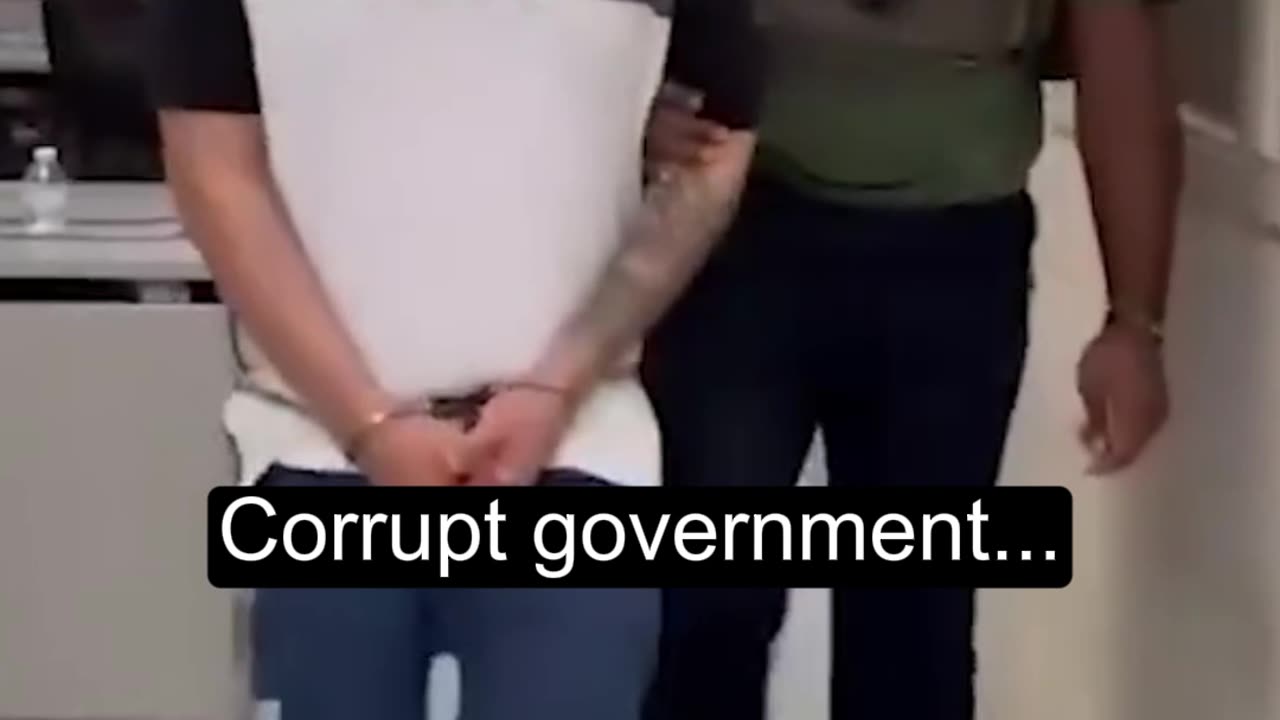Premium Only Content

Kilmar Abrego will be deported soon.
The case of Kilmar Ábrego García has become an example of the firm shift of the Trump administration in matters of immigration and security. Ábrego García was arrested in Maryland by ICE, and the Department of Homeland Security (DHS) identified him as an MS-13 member, human trafficker, and predator, confirming that he is being processed for deportation to Uganda. Although a federal judge has temporarily halted the removal while the case is being litigated, the government maintains its intention to carry out the measure, thus showing the determination to close legal loopholes that in the past allowed dangerous individuals to remain in the United States.
This action reaffirms Trump’s promise of law and order. First, public safety is prioritized over procedural ambiguities that could be exploited by criminal networks. Second, considering a third country as a deportation destination—in this case, Uganda—sends a clear deterrent message: if a viable legal option exists, it will be applied, regardless of whether it is the individual’s country of origin.
Likewise, DHS has pointed out that some politicians act as indirect accomplices by backing or protecting criminal profiles, and for this reason the White House seeks to discourage these support networks with strong messaging. The narrative and political coherence between the White House and DHS reinforces the image of an administration aligned in its strategy: detention, removal attempts, and public defense of the measures under the argument of protecting victims and showing zero tolerance toward transnational gangs.
The most common objections—such as the alleged lack of due process, stigmatization without evidence, or the choice of Uganda as a destination—are addressed from the administration’s perspective. The temporary judicial block demonstrates that oversight does exist and that the Executive must litigate to defend its position. Regarding Ábrego’s classification as a threat, DHS maintains that it has sufficient intelligence and records, and that the courts are the proper venue to challenge that assessment, not a blanket obstacle to executive action. Finally, the policy of deportations to third countries is legally debatable but viable if it meets minimum international standards, and it is up to the courts to decide this—without it meaning that the Executive must give up deterrent tools.
In summary, the case of Kilmar Ábrego García highlights how the Trump administration is moving forward with its agenda of strengthening borders and confronting immigrant criminality head-on, facing criticism while maintaining consistency with the campaign promise to prioritize the security of Americans over political interests or ideological pressures.
-
 1:00
1:00
Gateway Hispanic
2 days agoCarlos Manzo was shot dead, just like he warned
21 -
 LIVE
LIVE
meleegames
2 hours agoMelee Madness Podcast #58 - They Changed What ‘It’ Was & It’ll Happen to You
66 watching -
 2:32:46
2:32:46
megimu32
4 hours agoOn The Subject: Why K-Pop Demon Hunters Feels Like 90s Disney Again
7.84K8 -
 1:38:28
1:38:28
Glenn Greenwald
7 hours agoThe Fraudulent GOP War Against Tucker and Nick Fuentes; Dick Cheney: Hero of the Resistance; Lindsey Graham's Deranged RJC Comments | SYSTEM UPDATE #544
90.5K98 -
 LIVE
LIVE
ThePope_Live
2 hours agoRedsack with the boys Cheap, Jah and Nova!
274 watching -
 LIVE
LIVE
Hernandez2787
6 hours agoArc Raiders - 1st Playthrough/ Celebrating My Anniversary as Sergeant First Class in the US Army
65 watching -
 48:42
48:42
Donald Trump Jr.
7 hours agoCommunism vs Common Sense, What's Next for NYC? | TRIGGERED Ep.289
137K271 -
 LIVE
LIVE
JahBlessCreates
2 hours ago🎉Big Vibes - Gaming with Cheap, Pope, and Nova
43 watching -
 1:31:25
1:31:25
The Charlie Kirk Show
6 hours agoTHOUGHTCRIME Ep. 104 — Post-Election Palette Cleanser + Tucker/Fuentes Interview Reaction
98.7K41 -
 4:22:59
4:22:59
tminnzy
5 hours agoSmooth Moves Only 💨 | Naraka: Bladepoint Chill Gameplay | !gx
32.1K5